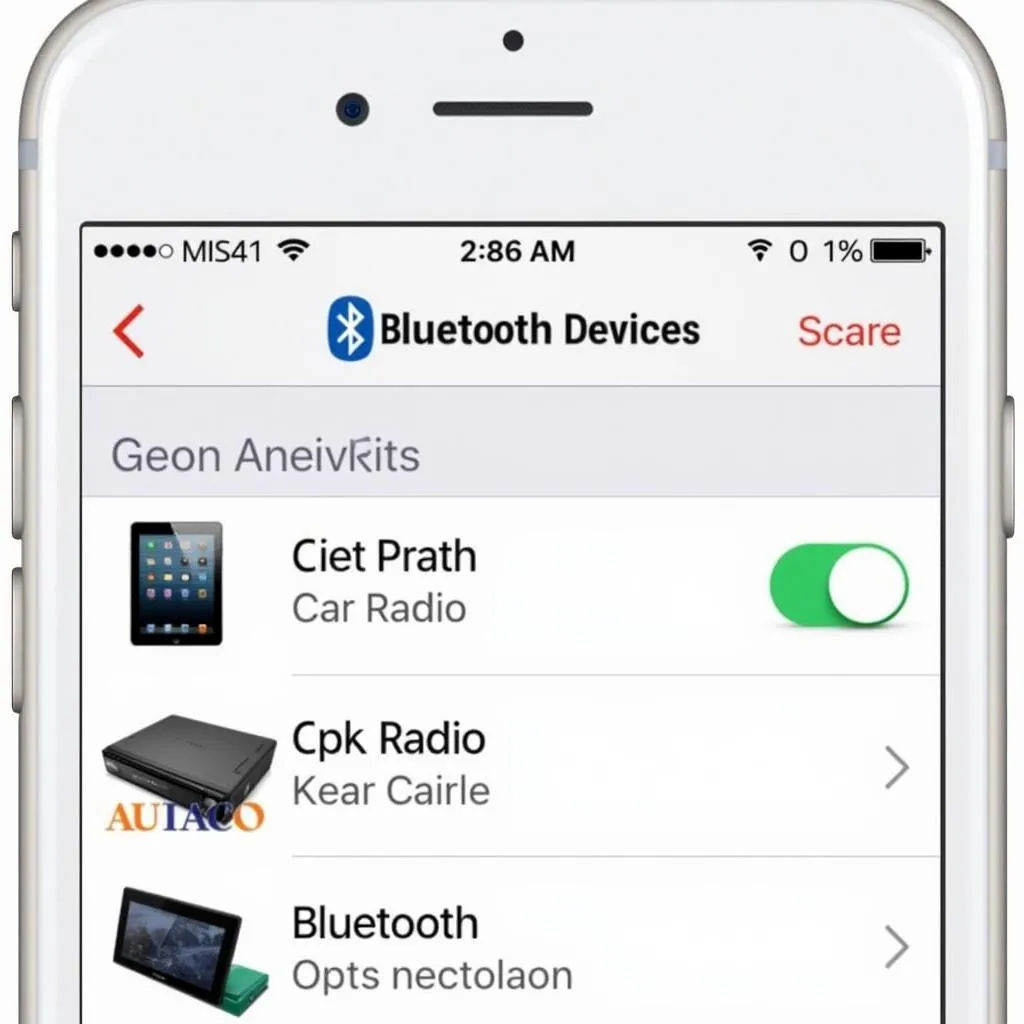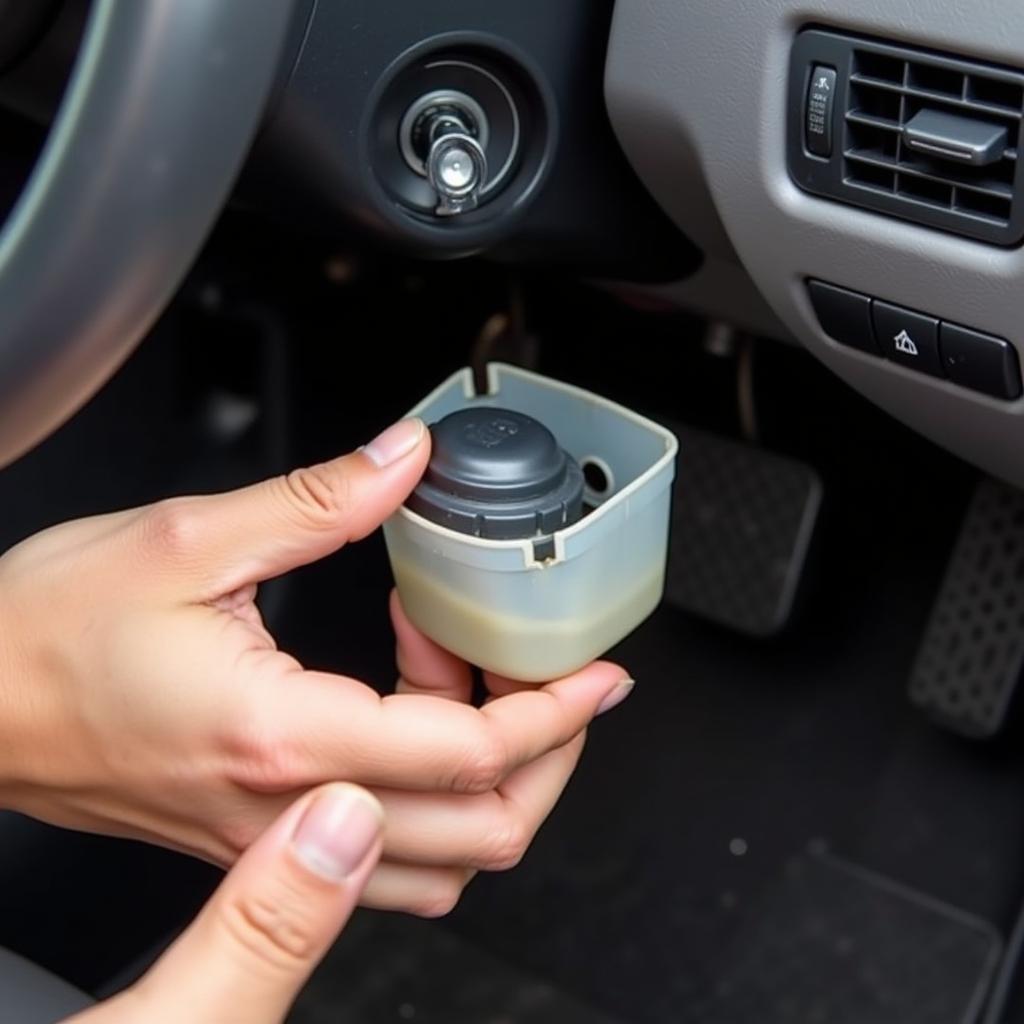A brake system truck warning light flashing on your dashboard is a nerve-wracking experience, to say the least. This crucial signal means your truck’s brake system needs immediate attention to prevent potential hazards. While it could be as simple as a low brake fluid level, more complex issues might be lurking, requiring expert diagnostics and repair.
Decoding the Brake System Truck Warning
Understanding why the brake system truck warning light is activated is the first step toward resolution. This warning light is connected to several components, and a problem with any of them can trigger the signal.
Common Causes of Brake System Truck Warnings:
- Low Brake Fluid: This is the most common culprit. It usually indicates a leak in the brake lines or a worn-out brake caliper.
- Worn Brake Pads: Brake pads have wear indicators that make a squealing sound when they thin out, indicating a need for replacement. If ignored, this can lead to further damage and trigger the warning light.
- Faulty ABS System: Issues within the Anti-lock Braking System (ABS), like a malfunctioning sensor or control module, can also activate the warning.
- Brake Booster Failure: This component helps reduce the effort required to apply brakes. A failing booster can illuminate the warning light and make braking more difficult.
Diagnosing the Problem: From Simple Checks to Expert Diagnostics
Before rushing to a mechanic, there are a few things you can check yourself:
- Consult Your Owner’s Manual: Always start with your truck’s manual. It will have specific information about the brake system warning lights and their meanings for your make and model.
- Check Brake Fluid Level: If comfortable, carefully inspect the brake fluid level in the reservoir. If it’s low, refrain from driving and consult a mechanic immediately.
- Inspect Brake Pads: If you have the know-how, check the thickness of your brake pads. Thin pads might be the issue. However, always prioritize safety and avoid handling brake components unless you’re confident in your abilities.
Seeking Professional Help
If simple checks don’t reveal the cause or if you’re uncomfortable performing them, it’s time to bring in the experts.
Modern Diagnostics for Complex Issues: Today, specialized diagnostic tools can pinpoint the exact problem within your truck’s intricate braking system. Mechanics skilled in using these tools can identify issues with the ABS module, sensors, wiring, and other electronic components that are difficult to diagnose otherwise.
brake system truck warning daf: For instance, DAF trucks, known for their reliability, also have sophisticated brake systems. Specialized software and expertise are crucial for accurate diagnosis and repair of brake system warnings in these vehicles.
The Importance of Addressing Brake System Issues Promptly
Ignoring a brake system truck warning can lead to severe consequences:
- Increased Stopping Distance: A malfunctioning brake system compromises your truck’s ability to stop efficiently, increasing the risk of accidents.
- Complete Brake Failure: Ignoring a persistent warning light can lead to complete brake failure, putting your life and the lives of others at risk.
- Costly Repairs: Early detection often means simpler and less expensive repairs. Delaying action can exacerbate the issue, leading to more complex and costly repairs down the line.
“Safety is paramount when it comes to trucks, and the brake system is its cornerstone,” says Michael Johnson, a veteran truck mechanic with over 20 years of experience. “Addressing a brake warning light immediately, whether through a quick check or a professional diagnosis, is crucial to prevent potentially life-threatening situations.”
Preventing Future Brake System Issues
Preventing is always better than cure. Here are some proactive measures:
- Regular Maintenance: Adhering to your truck manufacturer’s recommended maintenance schedule, including brake fluid flushes and brake pad replacements, is crucial for optimal brake system health.
- Quality Parts: Always opt for high-quality brake pads, rotors, and other components to ensure optimal performance and longevity.
- Mindful Driving Habits: Harsh braking and riding the brakes unnecessarily can accelerate wear and tear on your brake system. Adopting smoother driving habits can significantly prolong the life of your brakes.
Conclusion
A brake system truck warning is not something to be ignored. Understanding the potential causes, performing simple checks if possible, and seeking professional help when needed can save you from costly repairs and, more importantly, keep you safe on the road. Remember, timely action is key when it comes to brake system issues. If you’re unsure about any aspect of your truck’s braking system, don’t hesitate to consult a qualified mechanic.
FAQ
1. Can I drive my truck with the brake system warning light on?
It’s highly discouraged. Driving with a brake system warning light illuminated is extremely risky and can lead to accidents.
2. How often should I get my truck’s brake system inspected?
Refer to your owner’s manual for specific recommendations. However, it’s generally advised to have your brake system inspected annually or every 12,000 miles.
3. What is the difference between a brake system truck warning and an ABS warning light?
While both relate to the braking system, an ABS warning light specifically indicates a problem with the Anti-lock Braking System, while the general brake system warning can indicate various issues, including ABS malfunctions.
4. How long can I drive with worn brake pads before needing replacement?
Driving with severely worn brake pads is dangerous. If you suspect your brake pads are worn, consult a mechanic immediately.
5. What is involved in a typical brake system inspection?
A brake system inspection typically includes checking brake fluid levels, inspecting brake pads and rotors for wear, examining brake lines for leaks, and testing the functionality of the ABS system.


